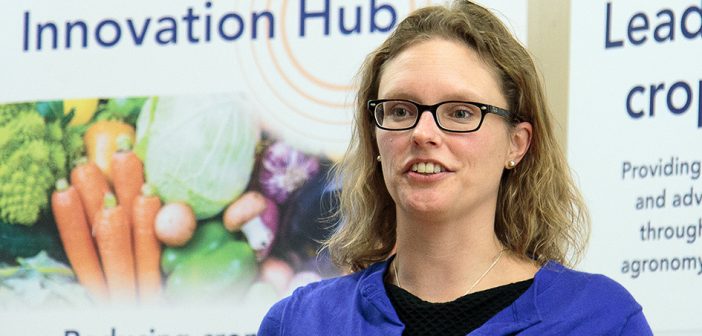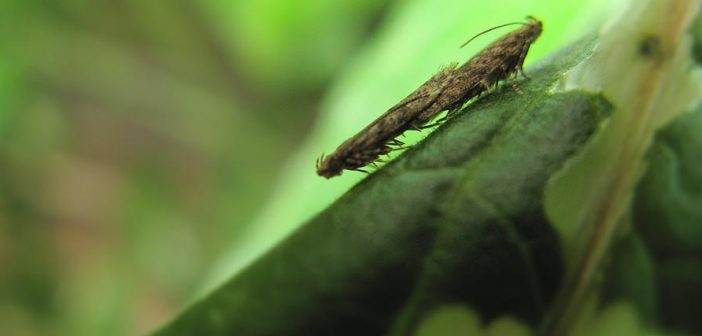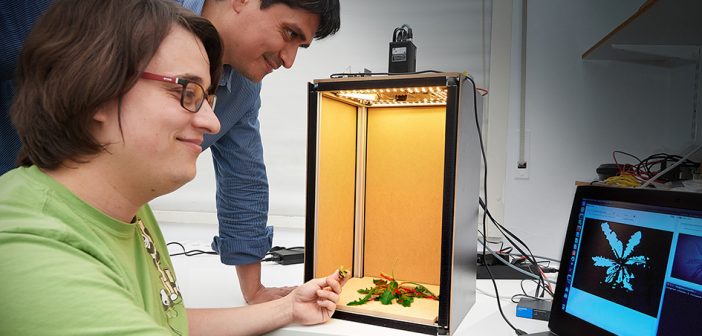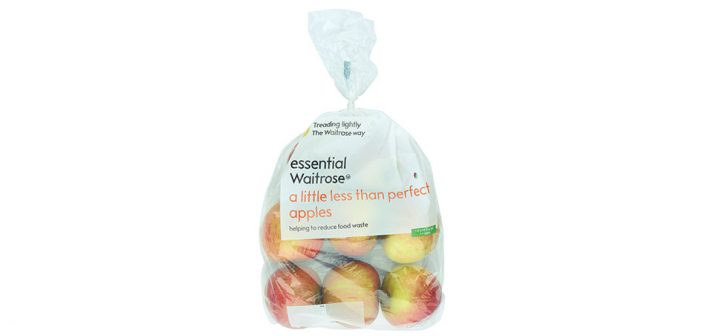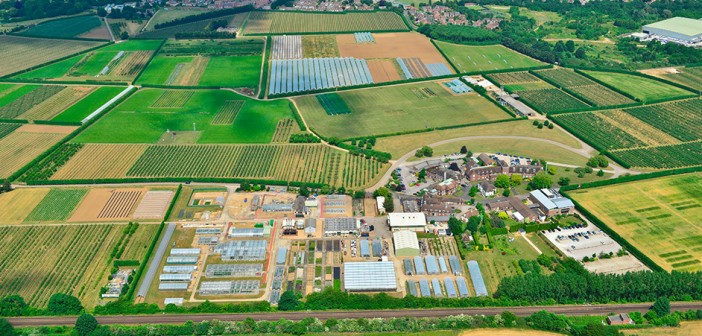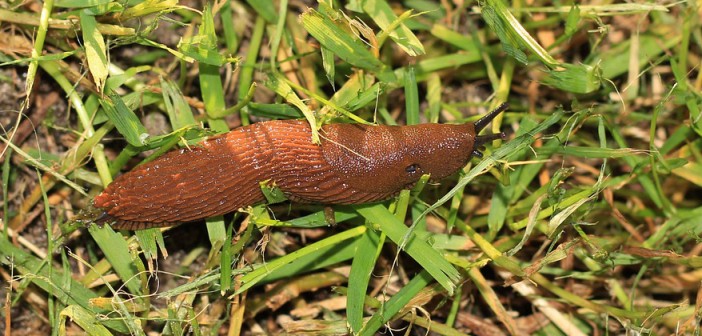Scientists at Iowa State University in the United States are developing graphene-based, sensors-on-tape that can be attached to plants and can provide data to researchers and farmers about water use in crops.
The tool, dubbed a “plant tattoo sensor” by researchers, is a tiny graphene sensor that can be taped to plants. Graphene is a carbon honeycomb which is just an atom thick, and is great at conducting electricity and heat, as well as being strong and stable. The graphene-on-tape technology has also been used to produce wearable strain and pressure sensors, including sensors built into a “smart glove” that measures hand movements.
“This fabrication process is very simple,” says lead developer Liang Dong. “You just use tape to manufacture these sensors. The cost is just cents.” In the case of plant studies, the sensors are made with graphene oxide, a material very sensitive to water vapour. The presence of water vapour changes the conductivity of the material, and that can be quantified to accurately measure transpiration from a leaf.
The plant sensors have been successfully tested in lab and pilot field experiments, and a new three-year, $472,363 grant from the U.S. Department of Agriculture’s Agriculture and Food Research Initiative will support more field testing.
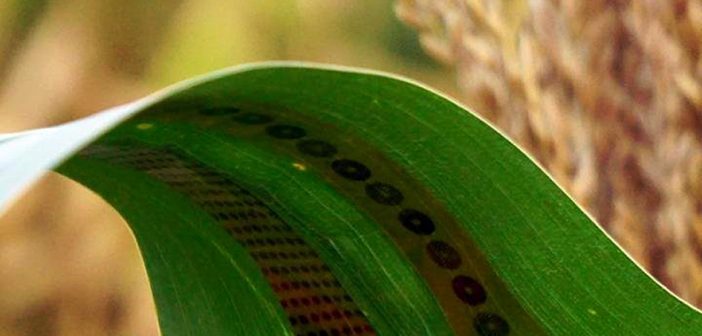
Photo Caption: Iowa State University researchers have developed these “plant tattoo sensors” to take real-time, direct measurements of water use in crops.
Photo Credit: Liang Dong/Iowa State University
The post Engineers make wearable sensors for plants appeared first on Hort News.
